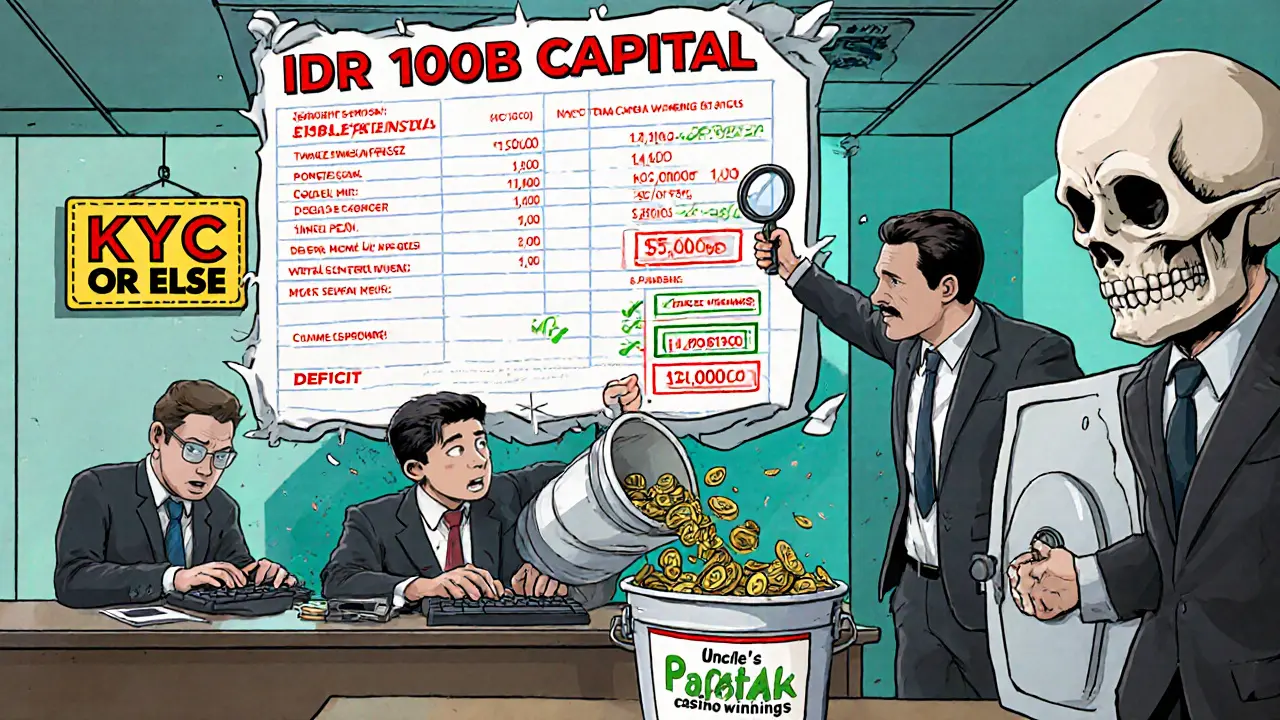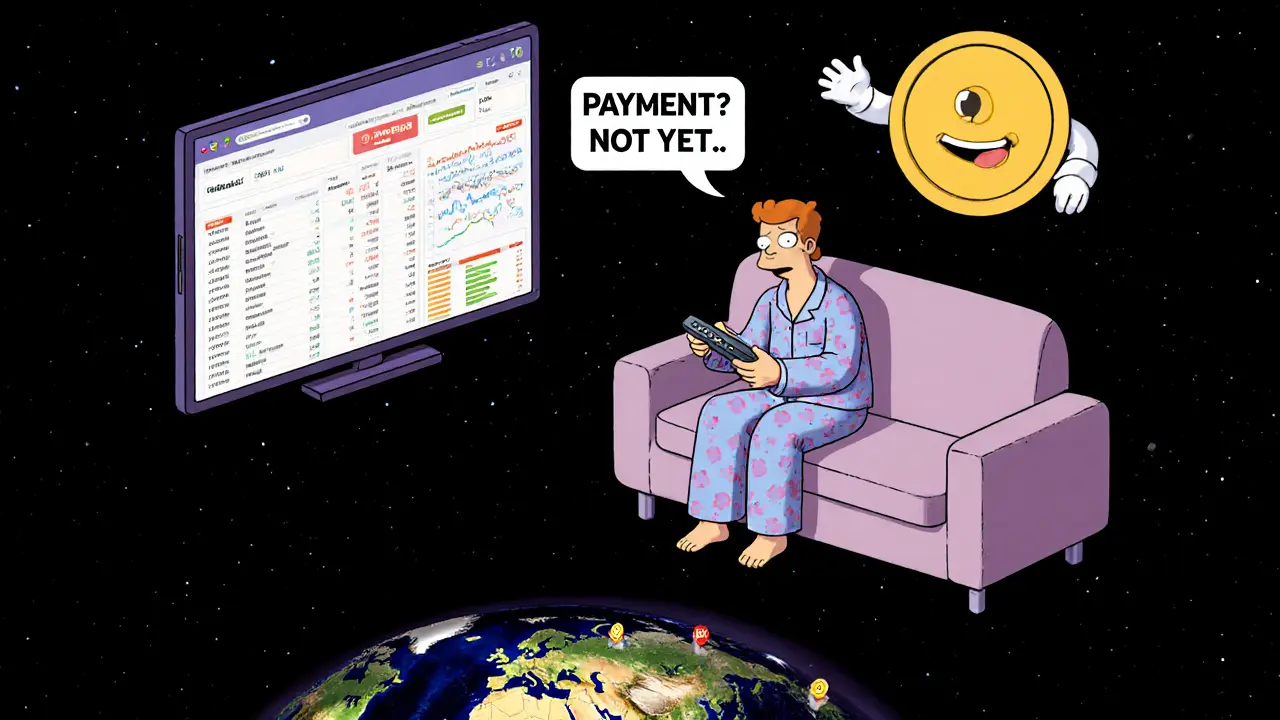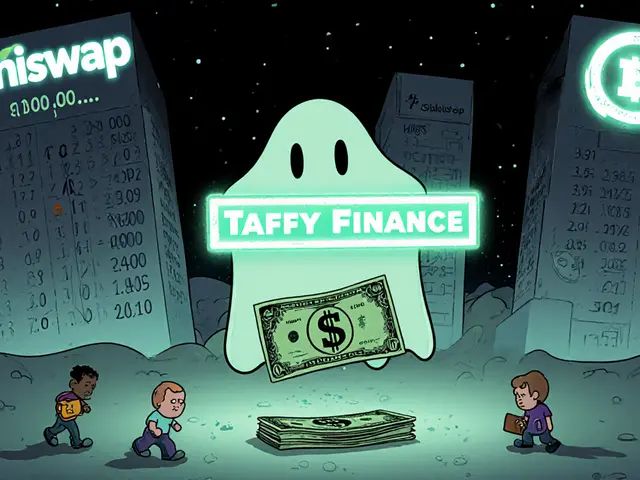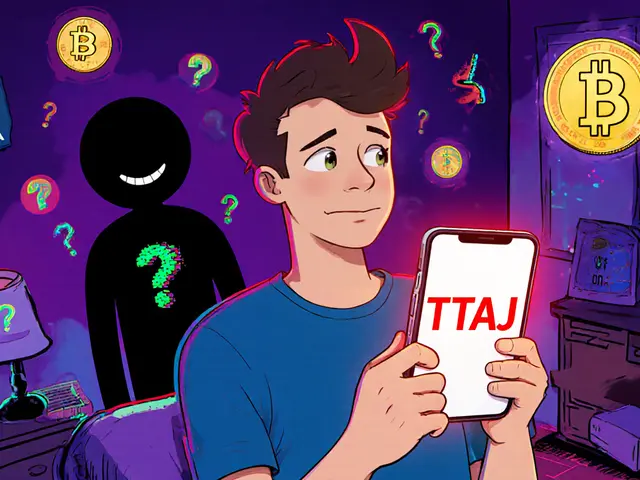Indonesia Crypto Tax Calculator
Under Indonesia's new regulations effective August 1, 2025, cryptocurrency trading no longer incurs VAT. Only capital gains tax applies to profits from selling digital assets. This calculator helps you determine your tax liability based on current Indonesian regulations.
Important Update Under Indonesia's new regulations effective August 1, 2025, cryptocurrency trading no longer incurs VAT. Only capital gains tax applies when you sell crypto for a profit. All trading must occur through OJK-licensed platforms.
Indonesia used to treat cryptocurrency like gold or soybeans - a commodity you could trade on exchanges, but not spend at the store. That changed in 2025. The rules didn’t just get tighter; they were rewritten from the ground up. If you’re trading crypto in Indonesia today, you’re no longer playing by the old commodity game. You’re operating under a financial system that treats digital assets like stocks or bonds - with all the oversight, capital rules, and tax changes that come with it.
The Big Shift: From BAPPEBTI to OJK
Before January 10, 2025, the Commodity Futures Trading Regulatory Agency (BAPPEBTI) was in charge of crypto. They didn’t care if you were buying Bitcoin or Dogecoin. As long as you followed basic AML rules and stayed on their approved list, you were fine. By early 2025, they had approved over 850 different digital assets for trading. That’s more than most global exchanges list. Then everything flipped. Law No. 4 of 2023 - the Financial Sector Development Law - moved crypto oversight to the Financial Services Authority (OJK). This wasn’t just a paperwork change. It meant crypto was no longer seen as a commodity. It became a digital financial asset. The goal? Bring crypto into the formal financial system, not keep it in a separate, loosely regulated corner. The shift wasn’t just symbolic. It came with real consequences. BAPPEBTI’s rules were simple: list assets, check for fraud, collect fees. OJK’s rules? They’re complex, strict, and built for systemic risk control.Who Can Operate Now? Capital Requirements Are Brutal
If you want to run a crypto exchange or trading platform in Indonesia, you need serious money. The minimum paid-up capital is IDR 100 billion (about $6.3 million USD). You also have to keep at least IDR 50 billion in equity at all times. That’s not a one-time deposit. It’s a running requirement. If your assets drop, you must top it up. And here’s the kicker: that capital can’t come from dirty money. OJK requires full traceability of funding sources. If you can’t prove your $100 million came from clean investors, you don’t get a license. This rule alone has shut down dozens of small, underfunded exchanges. Existing platforms had until July 2025 to comply. Many didn’t make it. Some merged. Others left the market. New entrants? They’re being forced to partner with banks or established fintech firms just to meet the capital threshold.What Can You Trade? The Whitelist Got a Major Cleanup
Before 2025, exchanges could list almost anything - even meme coins with no whitepaper or team. Now, OJK demands real substance. All digital assets had to be re-evaluated by February 2025. If they didn’t meet criteria like transparent development, active community, and technical security, they were delisted. By April 2025, every platform had to publish a new, approved list. Hundreds of tokens vanished overnight. Bitcoin, Ethereum, Solana, Binance Coin - those stayed. But obscure tokens with names like “Shiba Inu 2.0” or “DoggyCoin AI”? Gone. The list is now under 120 assets, down from 850. This isn’t just about safety. It’s about trust. OJK wants investors to know they’re not gambling on random code. They want the market to look more like the stock exchange than a crypto carnival.
Taxes Got a Major Overhaul - VAT Is Gone
The tax rules changed just as dramatically. Before August 1, 2025, crypto trades were taxed like goods. You paid 11% VAT every time you sold Bitcoin for Rupiah. Plus, you paid income tax on your profit. That double hit discouraged trading and made record-keeping a nightmare. Minister of Finance Regulation No. 50 of 2025 (PMK 50) scrapped that. Now, buying or selling crypto is treated like trading stocks - no VAT. Only capital gains tax applies. That’s a huge win for traders. It simplifies compliance and removes a major friction point. PMK 53 and PMK 54 updated the income tax rules to match this new approach. The system is now clearer: if you make money on crypto, you pay income tax. If you just hold or trade, you don’t pay VAT. The goal? Encourage activity without overburdening it.Strict Rules on AML, KYC, and Reporting
OJK didn’t just raise capital. It raised the bar on accountability. Every crypto business must now report suspicious activity to PPATK - Indonesia’s financial intelligence unit. That’s the same agency that tracks money laundering in banks. KYC rules aren’t spelled out in detail, but they’re expected to match bank-level standards. That means verified IDs, proof of address, and source-of-funds checks for every user. No more anonymous wallets on Indonesian platforms. Platforms must also submit regular reports to OJK - daily transaction logs, user activity, and asset holdings. OJK has real-time access to these systems. If something looks off - a sudden spike in transfers from a single wallet - they can freeze accounts within hours.What Happens If You Break the Rules?
Non-compliance isn’t a fine and a warning. It’s a potential shutdown. OJK can revoke licenses, freeze assets, ban executives from the industry, and even refer cases to criminal prosecutors. Several platforms were shut down in late 2024 and early 2025 for failing to meet capital or reporting deadlines. Even if you’re not a business, you’re not off the hook. If you use an unlicensed exchange, your funds aren’t protected. OJK doesn’t insure crypto holdings. If the platform gets hacked or vanishes, you lose everything - and you have no legal recourse.
Can You Use Crypto to Pay for Things?
No. And this hasn’t changed. Indonesia still bans crypto as payment for goods and services. You can’t use Bitcoin to buy coffee, pay rent, or order food online. That rule was never lifted, even after the OJK takeover. But there’s growing pressure to change it - especially for stablecoins. Industry groups are pushing for legal recognition of USD-backed tokens like USDT or USDC for payments. If that happens, it could be the next big shift. For now, crypto is strictly an investment product.What’s Next for Crypto in Indonesia?
The transition is mostly complete. The deadlines passed. The licenses are issued. The old system is gone. But the real test is just beginning. Will OJK be able to keep up with innovation? Can they handle DeFi, NFTs, or tokenized assets without stifling growth? Will foreign investors feel safe enough to bring capital in? Right now, Indonesia has one of the most structured crypto frameworks in Southeast Asia. It’s not as open as Singapore or as lax as Vietnam. It’s somewhere in between - strict, but predictable. For traders and investors, that’s a good thing. You know the rules. You know who’s watching. And you know the risks. For startups? It’s harder. But those who survive? They’ll be the ones building the next generation of financial services in Indonesia - not just crypto exchanges, but real financial tools built on blockchain, regulated, and trusted.Frequently Asked Questions
Is cryptocurrency legal in Indonesia in 2025?
Yes, but only as a digital financial asset for trading and investment. It is still illegal to use cryptocurrency to pay for goods or services. All trading must happen through OJK-licensed platforms.
Who regulates crypto in Indonesia now?
The Financial Services Authority (OJK) took full control on January 10, 2025. BAPPEBTI no longer has any authority over cryptocurrency. OJK sets capital, licensing, and compliance rules.
Do I have to pay VAT on crypto trades in Indonesia?
No. As of August 1, 2025, Value Added Tax (VAT) no longer applies to cryptocurrency trading. Only capital gains tax applies when you sell crypto for a profit.
What’s the minimum capital to start a crypto exchange in Indonesia?
You need at least IDR 100 billion (around $6.3 million USD) in paid-up capital and IDR 50 billion in equity. This capital must be clean and traceable - no money laundering allowed.
Can I use an offshore crypto exchange in Indonesia?
Technically, yes - but it’s risky. Offshore platforms aren’t regulated by OJK, so your funds aren’t protected. If the exchange gets hacked or shuts down, you have no legal recourse in Indonesia. OJK strongly advises using only licensed local platforms.
Are stablecoins allowed in Indonesia?
Yes, as investment assets. Stablecoins like USDT and USDC are on OJK’s approved list. However, they cannot be used for payments. There are ongoing discussions about allowing stablecoins for payments, but no law has changed yet.
What happens if I don’t report my crypto profits?
If you’re trading through a licensed platform, OJK and the tax office can see your transactions. Not reporting profits is tax evasion. Penalties include fines, interest, and possible criminal charges. The system is now fully connected - hiding gains is nearly impossible.





Mauricio Picirillo
Man, I remember when you could just buy Dogecoin and laugh about it. Now it’s like trying to open a bank account-papers, capital, background checks. Feels weird, but honestly? Kinda nice to know the house isn’t made of cards anymore.